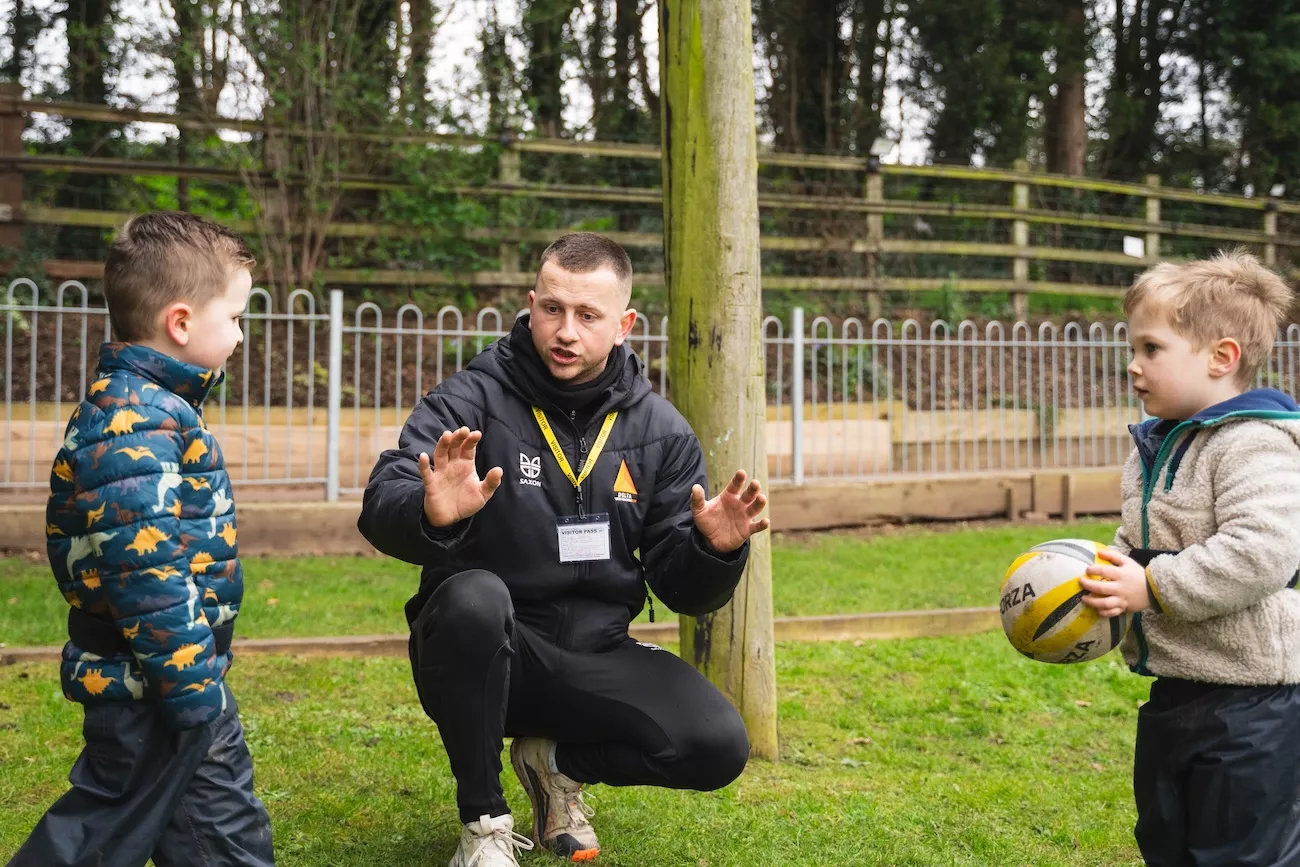Book now and receive 10% off

Planning a PE lesson that keeps every child active, engaged and smiling is no small feat, especially in a busy nursery or primary school. From ensuring safety and progression to juggling resources and varied ability levels, there’s plenty to think about.
At Delta Sports Coaching, we believe high-quality PE starts with purposeful planning. Our Curriculum PE Lessons service supports schools in delivering engaging, inclusive and skill-focused PE sessions that help every child build confidence and physical literacy.
In this guide, we’ll share a simple, step-by-step approach to planning the perfect PE lesson, tailored to both nursery and primary pupils.
Every great PE lesson starts with a clear purpose. Before thinking about activities, ask yourself: What do I want my pupils to learn or experience today?
A strong lesson intent gives direction and meaning. It could be:
For nursery and EYFS, the focus might be exploration, encouraging children to move creatively and develop fundamental movement skills.
For Key Stages 1 and 2, it could be more specific, refining control, applying tactics, or improving endurance and agility.
When learning objectives are clear, it’s easier to measure success and celebrate progress.
Children in early years and primary settings develop at very different rates. A five-year-old’s coordination, attention span and social skills are worlds apart from those of a ten-year-old.
Spend time observing how your pupils move, play and interact. Use informal “show me what you can do” games to gauge ability levels.
When planning, consider:
Understanding your class helps you design PE lessons that are both achievable and aspirational.
A well-structured lesson keeps energy high and learning focused. A simple framework works wonders:
Flexibility is key. Be ready to adapt timings depending on attention levels or class mood.
A perfect PE lesson keeps children moving, thinking and enjoying themselves. Avoid long queues or lengthy explanations. Instead:
The more active and involved pupils are, the more they learn, and the more they’ll look forward to PE.
Assessment in PE doesn’t need to be complicated. It’s about understanding where each child is and how they can move forward.
Use quick, visual checks: thumbs up/down, “show me your best throw”, or short reflection chats. Keep notes on what pupils can do confidently, and what needs more practice.
Feedback should be specific and encouraging:
“Great control with your hands. Next time, try to keep your eyes on the ball.”
Track small improvements over time. This not only supports progress but also builds motivation. For schools working with Delta Sports Coaching, we provide structured progression pathways and tracking tools to make this even easier.
Here are some tried-and-tested tips from our coaching team:
For generalist teachers, this structure can make PE more enjoyable to deliver and easier to manage.
A one-off great PE lesson is brilliant, but consistency is where transformation happens. Align your lesson plans with your school’s wider PE and Sport Premium strategy.
Encourage collaboration between teachers and specialist coaches. Invest in CPD so staff feel confident leading PE independently.
At Delta Sports Coaching, our approach focuses on building capacity, empowering schools to deliver exceptional PE lessons long after our sessions end.
At Delta Sports Coaching, we specialise in delivering curriculum-aligned PE lessons for nursery and primary schools.
Our team of qualified coaches work alongside teachers to plan and deliver fun, structured lessons that meet National Curriculum goals, while keeping every child active, engaged and progressing.
We support schools with:
Our aim is simple: to make PE a highlight of every child’s week, and a stress-free experience for teachers.
Planning the perfect PE lesson doesn’t have to be complicated. Focus on purpose, structure, engagement, and reflection, and you’ll create lessons that build confidence, skills and a lifelong love of movement. With the right support, every school can deliver outstanding PE, and that’s exactly what we’re here for.
If you’re a primary school teacher or PE lead looking for engaging, high-quality lessons without the planning headache, Delta Sports Coaching can help. Get in touch with us today to discuss how our expert coaches can support your school’s PE curriculum and help your pupils thrive through sport and physical activity.